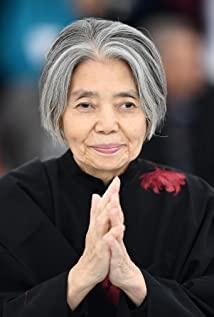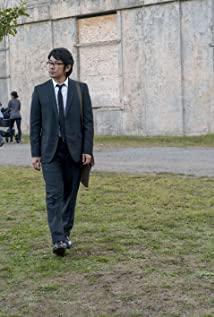Insomnia late at night and boredom, I started to write this film review, there are many omissions, look at Haihan. "There is no name and no monument, the tree is my grave. If you think about my voice and appearance, you will see the flowers bloom and the cherry blossoms fall, and the shadows of the trees are whirling." In the Umbra chapter, the tree has become the final destination of every leper. As a human being, he has been imprisoned in a wall for his entire life, keeping pace with the times and having nothing to do with the world. Mother Dejiang and the store manager are both people who have experienced darkness, but they have become each other's light. The store manager was imprisoned for hurting people. The death of his mother during his sentence made him immersed in endless darkness. Since then, he has closed himself and shrank in the dark corner of his heart. In order to report the debts of the former store manager, he ran dorayaki. The shop, where the gangsters spend their days, and then the arrival of Granny Dejiang, by imparting her knowledge and the way of weaving mats, may make the store manager feel the warmth of her deceased mother, and then after the death of Granny Dejiang, she explained it to the manager through recording. My own view of the meaning of life has become the light in the store manager's heart, just like the words "you can feel me shining" in the text, illuminating the store manager's inner redemption road. And mother-in-law Dejiang, a leper, was imprisoned in a leper hospital since she was a child. Her biggest wish is to live in the light, chat with customers in the store, and the well-made red bean paste is sought after by everyone. Such a normal life, right It seemed to her that she had truly lived. At the end of her life, the one who gave her such great encouragement and companionship was the store manager who had gone through darkness. As mentioned in the article, Granny Dejiang once had a child, but she failed to Being born deprives the right of being a mother, and if the child grows up normally, it is probably the same age as the store manager. Dejiang has satisfied the store manager's regret for his mother, and the store manager has satisfied Dejiang's life and motherhood like a normal person. vision. The store manager became the light of Dejiang. There are many detailed descriptions in this film to set off, the image of Hikaru, Wakana's mother and her lover on the phone, ignoring her children, reflecting the neglect of being a mother. The dog-loving woman's selfishness, vitriol toward others, and even morbid prejudice reflect the contempt for the warmth and coldness of life. What really touched the work was that people who had experienced extreme loneliness could only understand the wind and trees in the film. I personally think that this film is more in line with the cultural connotation of Japan. I have learned from the Tale of Genji that the Japanese's unique "things sorrow" thought, through a large number of scenery descriptions, reflects the vitality. The last scene, on the surface, is to describe the environment, combined with the central idea and main content of the film, in fact, it is the mountains and forests, the wind stream and the birds are chattering and talking, that is the mother Dejiang is whispering. Directed by Naomi Kawase, Shirin Zhilin plays Granny Dejiang, Masahiro Nagase plays the store manager. In this chapter, director Kawase shows the vitality of all things on the screen through a large number of scene descriptions and long-term lens switching. With a lot of body movements, the helplessness and frustration are vividly displayed, and the short dialogue is used to slowly talk to the audience like a story. The author may want to tell everyone through this film, walk out of the haze of the past, go to the life of spring and Jingming, dance in order to show the vitality of life, and show the meaning of life.
View more about Sweet Bean reviews










